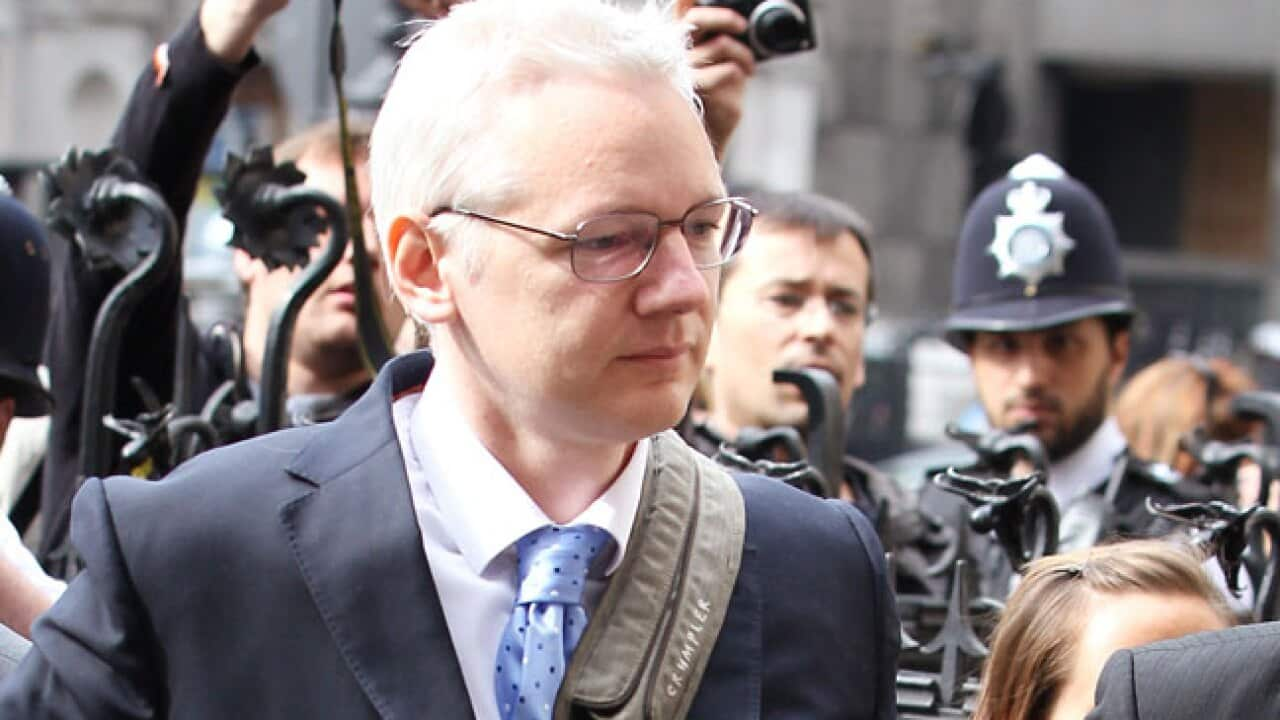Sweden has rejected Ecuador's claim that WikiLeaks founder Julian Assange will not get a fair trial as a reason for granting him political asylum, and summoned the South American country's envoy to explain.
"Our firm legal and constitutional system guarantees the rights of each and everyone. We firmly reject any accusations to the contrary," Foreign Minister Carl Bildt said on his Twitter account.
Separately, Swedish foreign ministry spokesman Anders Joerle said: "The Ecuadorian ambassador is expected at the ministry as soon as possible.
"The accusations that (the Ecuadorian foreign ministry) has formulated are serious and it is unacceptable that Ecuador would want to halt the Swedish judicial process and European judicial co-operation."
Assange sought refuge in the Ecuadorian embassy in London on June 19 after a British court ruled he could be extradited to Sweden for questioning about sexual assault allegations.
On Thursday, Ecuadorian Foreign Minister Ricardo Patino said Quito decided to grant him asylum as London, Stockholm and Washington refused to guarantee that Assange would not be sent on to the United States where he fears trial for the release of a trove of classified US documents by his whistleblowing website.
Joerle told AFP that Stockholm had received no extradition request from Washington and even if it did would be legally prevented from sending Assange to the United States.
Swedish law and the European human rights convention ratified by both Britain and Sweden banned extradition of a defendant to a country where he could face the death penalty, he explained.
Bildt added to his Twitter feed a link to the internet site of US human rights group Freedom House which put Ecuador 106th on a list of countries according to press freedom and Sweden second equal.
While the Brisbane-born 41-year-old at the heart of the global drama expressed his gratitude for Ecuador's protection, his future remains unclear with Britain refusing his safe passage out of city.
"We are disappointed by the statement by Ecuador's foreign minister that Ecuador has offered political asylum to Julian Assange," said British Foreign Secretary William Hague.
"Under our law ... British authorities are under a binding obligation to extradite him to Sweden," he added, committing to uphold the ruling of British courts, which have deemed Mr Assange should face questioning in Stockholm for allegations of sexual assault.
The lawyer representing the two Swedish women who filed the original complaints against Assange said he was puzzled by Ecuador's decision.
"I find it very difficult to understand why," lawyer Claes Borgstroem told AFP.
"He managed to change the focus. He is accused of rape and sexual assault but he managed to get people to talk only about WikiLeaks and the United States," the lawyer said.
Claiming that Quito was politically motivated in making its decision, Borgstroem said: "All this is revolting for my clients who have been considered for two years as conspirators."
Following Mr Patino's decision on Thursday the Ecuadorian government took a swipe at Australia for the lack of assistance offered to Mr Assange.
"Ecuador has noted that Mr Assange is without the due protection and help that he should receive from any state of which he is a citizen," it said in a statement.
In Canberra, federal Attorney-General Nicola Roxon said Australia would not intervene in the extradition debate, which is a matter between the UK and Ecuador.
Meanwhile fears that British authorities might storm the Ecuadorian embassy and nab Mr Assange were met with condemnation by Mr Patino and scores of WikiLeaks supporters.
"Hands off Ecuador. Hands off Assange," chanted the crowd outside the embassy, members of which carried banners and placards declaring support for the WikiLeaks leader.
More than five protesters were led away, some forcibly, by police as scenes became tense on Thursday morning. It was later confirmed that three people were arrested.
Inside the central London embassy, Mr Assange was grateful for Ecuador's support, but warned his challenges were not at an end.
"It is a significant victory for myself, and my people. Things will probably get more stressful now," he told staff at the embassy after hearing news of Mr Patino's decision.
"It was not Britain or my home country, Australia, that stood up to protect me from persecution, but a courageous, independent Latin American nation."
Learning news of her son's political asylum approval at home in Brisbane, Christine Assange said it was too soon to know what his next move would be.
Mr Assange is expected to make a statement in front of the embassy on Sunday at 14:00 BST, according to the Wikileaks Twitter feed.
Share

